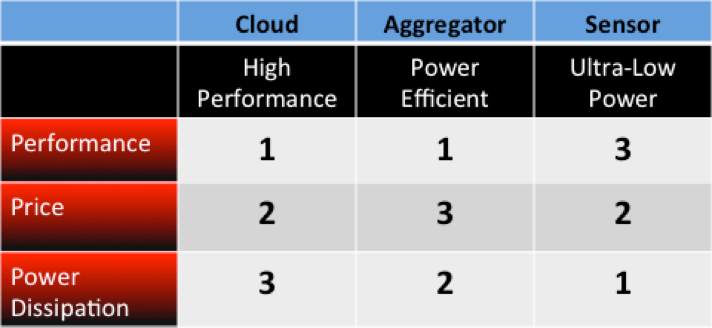I recently came across series of blog posts by Gene Frantz, devoted to the IoT. Since coming across these posts, I’ve done a summary of Gene’s definition of the IoT, and a second post on his three-part discussion on aggregators, one of three IoT components he writes about (the others are the cloud and smart sensors).
For starters, Gene is pretty adamant that, when we’re talking about the cloud, we should really be referring to it in the plural, since there are any number of private and public clouds out there. But despite making his case, he falls in line and uses what is the common term: the cloud. Whatever it’s called, it’s part of the overall IoT ecosystem.
Terminology settled, he provided an overview of the different roles that IoT components take on:
…the components in the smart sensors will be designed for ultra-low power, accepting the resulting performance levels. The components for the aggregator will be higher performance, but within a power budget. Finally, the components in the cloud will be designed for maximum performance with less emphasis on power dissipation or cost.

For the cloud, “performance is the primary priority, if not the only priority.”
If I take this concept of performance as the primary, if not the only, priority, for cloud computing, the class of devices in the cloud are high performance multi-core processing systems, GPUs, FPGAs, and specifically designed custom devices. In all of these classes of devices, their goal is to maximize performance, maximize communications bandwidth, or guarantee security and privacy.
(Gene acknowledges that in many circumstances, aggregators are also a high-performance component. And further acknowledges that his focus on the microprocessors that are cloud sub-components is because he comes from the world of DSPs. In fact, Gene Frantz is considered the father of the DSP.)
Gene concludes the section of the IoT series devoted to the cloud to a rather philosophical exploration of the use of the word “infinite” in the context of IoT, grappling with the often-used notion that the cloud offers infinite performance, infinite bandwidth, and total security, and wondering whether “infinite” overstates the case. He lands on his personal definition of infinite: practically speaking, Gene accepts that “infinite” translates into “just a bit more” performance and bandwidth than he needs, and “security [that keeps] ahead of those trying to take my stuff.”
My next report out on Gene’s series will be devoted to something near and dear to my heart: smart sensors.
